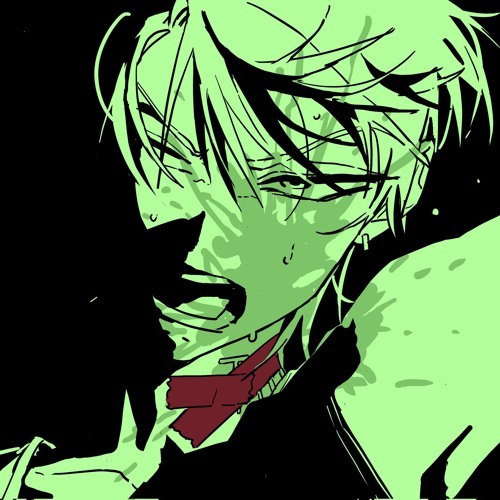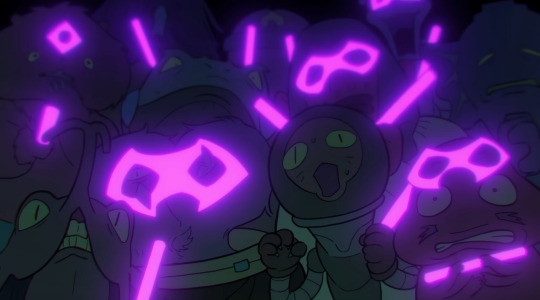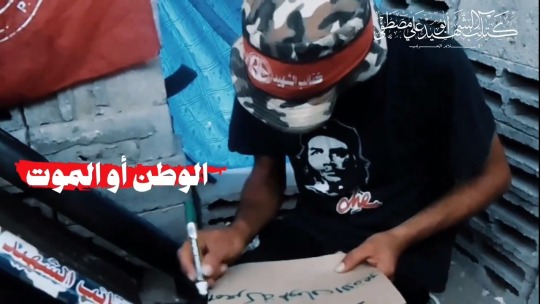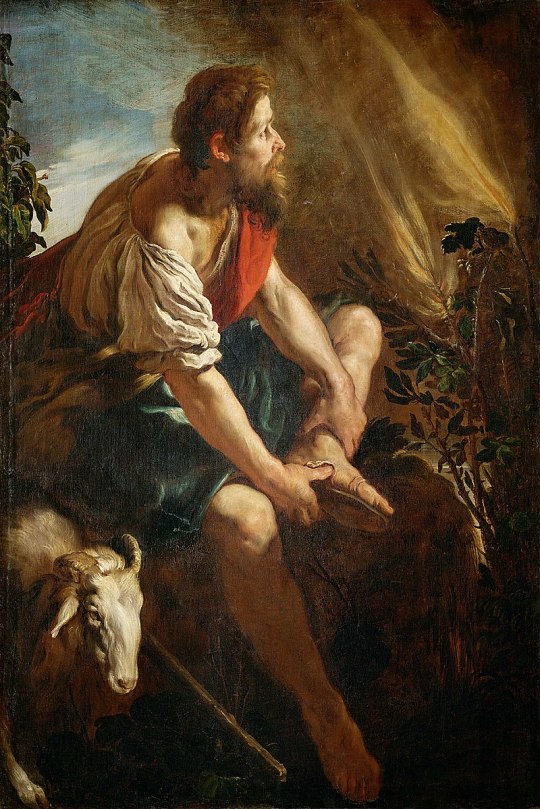#resistence
Explore tagged Tumblr posts
Text

Polish resistance fighters manage to grab a bite to eat during the Warsaw Uprising - Poland, Aug 1944
#world war two#ww2#worldwar2photos#history#1940s#ww2 history#wwii#world war 2#ww2history#wwii era#1944#uprising#Warsaw#warsaw uprising#ghetto#Poland#resistence
403 notes
·
View notes
Text

#free palestine#palestine#free gaza#genocide#gaza#stop genocide#international criminal court#resistence
177 notes
·
View notes
Text
Till’s “All-in” cover & Round 7 parallels
Something I’ve told myself since yesterday is if Till is truly to die in Round 7, “wouldn’t the team go all-in? Why did they not?” & That line of thought brought to mind Hyuna’s All-in song lol… but then Till’s cover of All-in came to mind because of that… & then the I remembered the tape on that song’s cover art, exactly where Till’s wound is in Round 7….

One thing to also note about the song is its clear themes of rebellion and going against all odds, & how even if victory seems slim to some, the resistance will push back against the cheers of the aliens.
“Step all over me but I'll rise again It's you who's in the wrong, bet you had no idea”
Of course this lyric showcases that too, but what I’ve seen theorised is that the last line of the lyric (amongst a few others in the song too) could also be referencing Luka as well (due to Luka’s potential role in Hyuna’s personal life)
Generally who is chosen for which cover doesn’t SPECIFICALLY reference their canonical standing. But changes are made to the delivery of the lyrics to fit each characters and their dynamics and positions. Thus I do find it interesting that a song like this was chosen for Till.
Even the cover image almost directly references Till’s position in Round 7! Plus it’s interesting that a song that references rebellion and resistance against the aliens’ expectation as they are cheering, a song that potentially references Luka’s methods, also aligns with Till’s position in Round 7!
The aliens are cheering against him towards the end of the round, they’ve voted for Luka’s win, stepping all over his ambitions and being.
(Note: the purple glow sticks, the aliens’ cheering isn‘t in support of Till, but rather against him)


Additionally, Till was able to break away from Luka’s impact on him in the last moment (because he saw Mizi), he proved Luka’s tried and tested method wrong


Perhaps the cover carries a greater relevance to Till’s role in the final round?
Even if it seems that by this point “There's no point fighting back”, he’s lost, he’s done for - his rebellion has been snuffed out, perhaps even in such a bleak moment, Till’s resistance will “rise” above the attempts to step over him.
“I'll create a fantasy in this crazy world And change it all, I'm going all-in”
If it means to survive and see his ambitions be realised, he’ll go all-in, even if hope seems bleak in that last moment, even if he’s been trampled on.
Which thus brings us back to the tape covering where his wound is, and thus blocking him from bleeding out (like the aliens would want cuz he’s lost).
Food for thought I suppose lol
#alnst till#alien stage till#vivinos#alien stage#alnst#round 7#song cover#analysis#parallel#possible connection?#Even more possibly copium?#Rebellion#resistence#blink gone#all-in#alnst luka#till#luka#Speculation
47 notes
·
View notes
Text
Even when we don’t have the power to revolt, we always have the power to resist, sometimes in the smallest ways.
D. L. Soria, Thief. Liar. Lady
#razreads#book quote#theif liar lady#d l soria#power#action#hope#resistence#rebellion#stand up for what you believe#queue have a good day now
26 notes
·
View notes
Text

Gong Li as Anna Lan-Ting in "Shanghai" (2010).
9 notes
·
View notes
Text

Stay alive, in spite of everyone who wants you dead
17 notes
·
View notes
Text
Telling to Exist
In a world where stories are weapons, we write to survive—and to outlive. The Palestinian narrative will endure— because it holds the truth.
This visual series is a quiet act of resistance— a reflection on how we remember, write, and remain.
The War on the Right to Tell
From ruins, we begin with memory. And the first truth we must say out loud:
This is not just a war of bombs. It is a war on memory, on truth— on the right to narrate.

They tried to erase us with a lie: a land without a people.
But she stands facing the land like an old friend— as if listening to a familiar song rising from the earth. She knows what they refuse to see: that this soil remembers, that it breathes, that it mourns. And it speaks—through names carved in stone, through stories passed down like heirlooms.

First, she stood in silence, listening to the heartbeat of the land they called empty. Now, she stands surrounded by memory— photos of those who loved, maps they tried to erase, and books filled with the words of the silenced. They buried the truth under dust and borders, but she found it, and wrote it back— page by page, story by story, until erasure became impossible.

"What Was Buried, Still Speaks"
In a world silenced by ruin, Wafa walks through the remnants of stories nearly forgotten.
Beneath the dust and debris of war, she finds not just books—but voices.
They were buried like seeds beneath the rubble: 📖 Men in the Sun by Ghassan Kanafani 📖 Wild Thorns by Sahar Khalifeh 📖 A Balcony over the Fakihani by Liyana Badr 📖 Sitti’s Secrets by Naomi Shihab Nye
Each title whispers resistance. Each page breathes memory.
Wafa doesn’t know it yet, but this quiet encounter is the beginning of something vast— a reclamation.

"Lighting What Was Lost"
In the quiet of night, Wafa holds a small candle— not just for light, but for memory.
She strikes a match. The flame flickers—fragile, hesitant— then settles.
This is not about power outages. This is about illumination of what history tried to extinguish.
From beneath the rubble, she carries the stories into a trembling flame.
And suddenly, the darkness listens.

"In Darkness, They Wrote"
Wafa kneels beside the flame, her face aglow with questions and memory.
Behind her, shadows take shape— not ghosts, but authors.
They hold books, not weapons. They speak not in slogans, but in verses, diaries, letters.
"In darkness, they wrote..." she whispers, and the silence deepens with meaning.
They wrote because they were not allowed to speak. They wrote because they refused to vanish.

"...So We May Remember"
The candle is still burning, but something has changed. Wafa is no longer alone.
Around her, the writers emerge— faces from the past, lit by the fire of memory.
They hold open books, as if mid-sentence. As if their words never ended.
A book titled Memory lies rooted in the ground, its pages feeding the soil.
Wafa reads not just with her eyes, but with her whole being. She understands now:
They wrote in the dark, so we may remember in the light.

------------------
“Books are barricades...”
Wafa walks along the wall.
On it: the phrases of power. Cold, chiseled, imposed.
“This land was empty.” “Peace through power.” Lies carved in concrete.
But then— A break in the wall.
Not made of stone, but of paper and light.
Books rise like barricades: Existence. Memory. Truth.
They are not weapons. But they protect. They hold the line.
They say: We were here. We remember. We resist.

“To write is to return.”
At night, Wafa writes by candlelight.
Her desk is quiet, but her heart is loud.
On the wall behind her: photos of faces, trees, stones, wires. Fragments of a land still speaking.
She is not writing history. She is answering it.
Every word she writes is a thread pulling her back to the ones who came before.
A grandmother’s voice. A house without a roof. A child behind a fence.
She writes because memory fades— unless we hold it.

“To write... is to exist.”
Wafa closes her eyes.
She is not escaping— she is arriving.
As her pen touches the page, her memories awaken. The land responds: a tree grows, a house returns, a key glows in her chest.
What was lost is still alive in language.
She writes not only to remember, but to be.
To write is not just resistance. It is presence. It is breath. It is being.

She found our stories buried in silence. She listened, she wrote, and in each word, we returned. Not as memories, but as presence. To write was not to remember. It was to remain.
#art#digital art#drawing#comic#comics#free palestine#free speech#gaza#palestinian art#resistence#save palestine#NarrativePower#ArtForJustice#books and reading
6 notes
·
View notes
Text

CALL YOUR SENATORS. NO MATTER WHERE YOU ARE.
(then call the Republicans on this list and tell them to vote NO as well. Hint: act like you're conservative and would HATE to have to vote against them in their next election)
ESPECIALLY call Bill Cassidy of Louisiana, Susan Collins of Maine, Lisa Murkowski of Alaska and Mitch McConnell of Kentucky, as they're the likeliest of no votes!
Call both a DC (as listed) office AND a local office, if you can! They tally from both.
(image taken from the.wellness.therapist on Instagram)
8 notes
·
View notes
Text

Dutch resistance fighters pose for a photograph in Winterswijk after its liberation by the British Army - Netherlands, March 1945. CREDIT : IWM COLOUR : Piece of Jake
#world war two#ww2#worldwar2photos#history#1940s#ww2 history#wwii#world war 2#ww2history#wwii era#netherlands#1945#winterswijk#resistence#resistance#liberation
129 notes
·
View notes
Text

Glory to smart women. these two girls are a rare example of the fight against hypocrisy, because if we defend international law as a matter of principle, then Ukrainians are obliged to support the Palestinians, despite the suicide of the American administration's credibility
#free palestine#palestine#free gaza#genocide#israel#gaza#stop genocide#international criminal court#icc#ukraine#resistence
87 notes
·
View notes
Text

"Patria o Muerte" (written in Arabic in the image) from the Brigades of the Martyr Abu Ali Mustafa, the armed wing of the Marxist-Leninist Popular Front for the Liberation of Palestine (PFLP) operating in the Palestinian territories, including the West Bank, Gaza, and East Jerusalem.
18 notes
·
View notes
Text
sitting in my bedroom reading
posts on bright screens with bleary eyes
blinking away spots and
wishing i could blink away the words replaying
in my head i need
a break really i need to
be allowed a moment and
i need to be allowed to breathe
if only the world worked better in those ways
i just didn't do my homework today i
didn't feel like it
instead i went through and fixed up old pictures
on my computer that i'm proud of taking and
watched a movie on the tiny screen of my tablet and
sat in my room at my desk and tried to take a moment
at least i got something done even if it wasn't
something that productive i just
need a break need acceptance need a world that
isn't so rude with absolutely no reason can't
people just live and i
can't do anything about it except write
poems lacking punctuation
to represent the neverending feeling of never getting a break
never that's the thing they always tell us we'll
never be i guess i wonder
if they say it enough will it cancel itself out will it
start being always as in
we always deserve to be ourselves we always
deserve to exist and feel and breathe and live and can't we
just be free for once for once all these
teenagers are burnt out and want to escape i
wonder why is it so hard for them to see this why
can't anyone just see us we
make sense if you're actually looking at facts and not
fallacies spewed across and out by people who know nothing but
how to hate senselessly and unendingly we just have to
create our own futures and our own worlds i guess after
all what else is there to do when we don't have much power to
change things otherwise
i just allowed myself a breath but
even though for a second I had peace it's
started up again neverending
no i don't care that that word isn't
one word it's two what
makes you think i care about something like that at a time like this although
isn't it better sometimes to think on things you can control like grammar and spelling and
the speed you walk at in the hallways at school
instead of fretting about how
the existence of so many people has
somehow turned into an issue you can only talk about when
it's being debated in court or
by the people with all the controlling and hateful power
i took another breath i took several and
it felt good but i still can't stop how
do we deal with this by
writing poems for one i guess this
is turning into lots of i guesses it's time for something i know
this poem will never be finished it's
the marching movement of everrebellious life moving on and
no i don't care that that's also not a word i have
other things to think about at a time like this
like how nice it is to write poems on rough notebook paper and
flip through the pages and feel fulfilled and
how nice it is to step on snow outside and
how calm that one class period is and
how nice these blankets feel and
how amazing the feeling of making art is and
how beautiful it is that we're still living and
how incredible it is that we're still existing and thriving in the face of hate i
won't let that be the last word of this poem I'll
end it with create
#poem#poets on tumblr#original poem#existence is resistance#existence#queer#lgbtq+#genderqueer#nonbinary#queer poetry#resistence#life is worth living#we'll never stop#we'll never go away#we'll keep on existing and breathing#whether they like it or not#take a breath#take a break#you are not alone#we'll figure it out#late night thoughts#spilled thoughts#pebbledthoughts
4 notes
·
View notes
Text
to se vám tak naskytnu na místech kde nacházím štěstí, a říkám si
wau chci toho více,
jenomže to znamená vydat se do svého podvědomí, a najít všechny ty nitě,
co říkají, to je moc, to si nezasloužíš,
říkám si, že tam půjdu, do té bolesti,
v tom se přistihnu zas ve stavech, a tísni,
jak kroužím po pokoji, a dělám to,
co vždycky
4 notes
·
View notes
Text

4 notes
·
View notes
Text
Illuminating Liberation
Domenico Fetti's Moses and the Burning Bush and Essential Reads on Resistance in Abrahamic Faiths

Domenico Fetti’s Moses and the Burning Bush (1613) captures one of the most significant moments in biblical history—the divine call of Moses to lead the Israelites out of bondage in Egypt. Created during Fetti’s tenure in Mantua, the work exemplifies the Baroque fascination with dramatic storytelling, emotional intensity, and the use of light to symbolize divine presence. In this painting, Moses kneels before the miraculous burning bush, which is enveloped in glowing, otherworldly flames that do not consume it—a powerful visual representation of God’s eternal and unchanging nature.
Fetti rose to prominence during his time at the court of Mantua, a historic city in the Lombardy region of Italy, which is now a UNESCO World Heritage Site for its significant role in the Italian Renaissance and Baroque periods, particularly as the seat of the Gonzaga family. The Gonzaga court’s support allowed Fetti to experiment with devotional imagery, exploring sacred themes with human emotion until his untimely death at the age of 34, likely from tuberculosis.
Fetti’s depiction is characteristic of Baroque art, with its rich, dynamic use of chiaroscuro (the interplay of light and shadow) to highlight Moses’s awestruck expression and the supernatural glow of the bush. The painting also reflects the Catholic Counter-Reformation emphasis on personal, emotional engagement with biblical narratives, encouraging viewers to reflect on themes of divine justice and human obedience. Historically, the story of Moses and the burning bush became a symbol of resistance and liberation, particularly resonating with oppressed communities who saw in Moses a model for standing against authoritarian power and leading movements for freedom and justice.
Abrahamic Religious Scholarship on anti-authoritarianism
There is a rich field of non-fiction literature and theological analysis exploring themes of resistance to authoritarianism within the Abrahamic faiths (Judaism, Christianity, and Islam). These works often focus on scriptural interpretations, historical events, and ethical frameworks that speak to the ways in which each faith tradition has engaged with political authority, justice, and social resistance.
Here's a reading list of some works that examine these themes:
1. "God and Empire: Jesus Against Rome, Then and Now" by John Dominic Crossan
Crossan, a prominent scholar of early Christianity, explores how Jesus’ teachings and actions represented a subversive response to Roman imperialism and authoritarian power structures. Crossan argues that Jesus’s message was one of nonviolent resistance against the oppressive rule of Rome and that this anti-imperial stance has important implications for contemporary Christian social ethics.
2. "The Prophets" by Abraham Joshua Heschel
Heschel’s classic work focuses on the prophetic tradition in Judaism, highlighting how prophets such as Isaiah, Jeremiah, and Amos spoke out against injustice, idolatry, and the abuse of power. Heschel argues that the Hebrew prophets were deeply committed to resisting social and political corruption, presenting them as models for ethical resistance to authoritarianism in all ages.
3. "Jesus and the Disinherited" by Howard Thurman
Thurman’s work connects the life and teachings of Jesus to the experience of marginalized and oppressed communities. Written during the Jim Crow era, this influential book argues that Jesus’ teachings provide a blueprint for resisting social injustice and authoritarian oppression, emphasizing love, nonviolence, and solidarity with the poor and disinherited.
4. "Islam and the Challenge of Democracy" by Khaled Abou El Fadl
Abou El Fadl is a prominent scholar of Islamic law who argues that Islamic ethics support democratic values and resistance to authoritarian rule. In this book, he addresses how Islamic teachings on justice, human dignity, and accountability can be mobilized to critique and resist political authoritarianism within Muslim-majority societies.
5. "The Politics of Jesus" by John Howard Yoder
Yoder, a pacifist theologian, argues that Jesus’ life and teachings exemplify a radical, nonviolent form of resistance to political power and violence. Yoder’s work has influenced many Christian movements advocating for social justice and nonviolent resistance, framing Jesus’ message as fundamentally opposed to authoritarianism and state violence.
6. "The Cross and the Lynching Tree" by James H. Cone
Cone, a foundational figure in Black Liberation Theology, explores the connections between the suffering of Jesus on the cross and the historical suffering of Black Americans under slavery and segregation. He argues that the Christian cross should be understood as a symbol of solidarity with the oppressed and a call to resist systems of authoritarianism and racism.
7. "Religion and Resistance in America" by various authors, edited by Allan D. Cooper
This anthology examines the role of religion as a force for social resistance in American history, focusing on various religious movements that have resisted authoritarian and oppressive systems. The essays cover a range of Abrahamic perspectives, including Jewish, Christian, and Muslim perspectives on resistance to authoritarianism in the U.S. context.
8. "The Powers That Be: Theology for a New Millennium" by Walter Wink
Wink’s work examines the "principalities and powers" mentioned in the New Testament as forces that seek to dominate humanity. He interprets these as both spiritual and institutional powers that people are called to resist. Wink explores how individuals and communities can resist these powers nonviolently, drawing from both biblical theology and contemporary social movements.
9. "The Islamic Roots of Democratic Pluralism" by Abdulaziz Sachedina
Sachedina examines democratic principles within the Qur'an and Islamic ethics, challenging authoritarian interpretations of Islamic governance. He highlights the role of justice, consultation (shura), and human rights within Islam, advocating for political systems that respect pluralism, accountability, and the inherent dignity of all people.
10. "Render Unto Caesar: The Struggle Over Christ and Culture in the New Testament" by Christopher Bryan
Bryan examines the New Testament’s treatment of political authority, focusing on passages like “Render unto Caesar” and exploring how early Christians navigated their obligations to the Roman Empire. He argues that while the New Testament acknowledges earthly authority, it also critiques the abuse of power and emphasizes the sovereignty of God over human rulers.
11. "God’s Revolution: Justice, Community, and the Coming Kingdom" by Eberhard Arnold
Arnold, founder of the Bruderhof community, draws on Anabaptist and early Christian traditions to argue for a nonviolent resistance to authoritarianism. His work emphasizes the need for Christians to embody an alternative, justice-oriented community that challenges worldly power structures.
12. "Sacred Resistance: A Practical Guide to Christian Witness and Dissent" by Ginger Gaines-Cirelli
This book offers practical advice for Christians seeking to engage in social resistance while staying rooted in their faith. Gaines-Cirelli discusses how biblical teachings can inspire action against authoritarianism, injustice, and other social ills, with a focus on nonviolent witness and advocacy.
13. "The Jewish Political Tradition, Vol. 1: Authority" by Michael Walzer, Menachem Lorberbaum, and Noam J. Zohar
This volume explores Jewish thought on political authority, autonomy, and resistance to tyranny throughout history. Drawing on classical and modern Jewish sources, the authors discuss how Jewish communities have interpreted and responded to political power, including themes of resistance and critique of authoritarianism.
14. "Islamic Liberation Theology: Resisting the Empire" by Hamid Dabashi
Dabashi explores the roots of Islamic liberation theology, analyzing how Islamic teachings support resistance to imperialism and authoritarianism. He argues that Islam offers a framework for anti-colonial and anti-authoritarian resistance, connecting the Qur'an’s themes of justice, liberation, and the prophetic tradition with contemporary movements for freedom.
15. "Faith-Rooted Organizing: Mobilizing the Church in Service to the World" by Alexia Salvatierra and Peter Heltzel
This book provides a framework for faith-based social activism, drawing from both Christian and Jewish teachings on justice and resistance. The authors offer guidance on organizing efforts against oppressive structures, emphasizing the role of faith communities in advocating for systemic change.
16. "Exodus and Revolution" by Michael Walzer
Walzer’s analysis of the Exodus story in the Hebrew Bible interprets it as a foundational narrative of liberation, justice, and resistance to oppression. He argues that the Exodus has been used throughout history as a powerful model for resisting authoritarianism and envisioning a just society.
#art#art history#baroque#abrahamic religions#christianity#christian blog#books and reading#literature reviews#reading list#theology#anti authoritarian#authoritarianism#resistence#domenico fetti#moses#bibliophile#ancient history#catholicism
6 notes
·
View notes